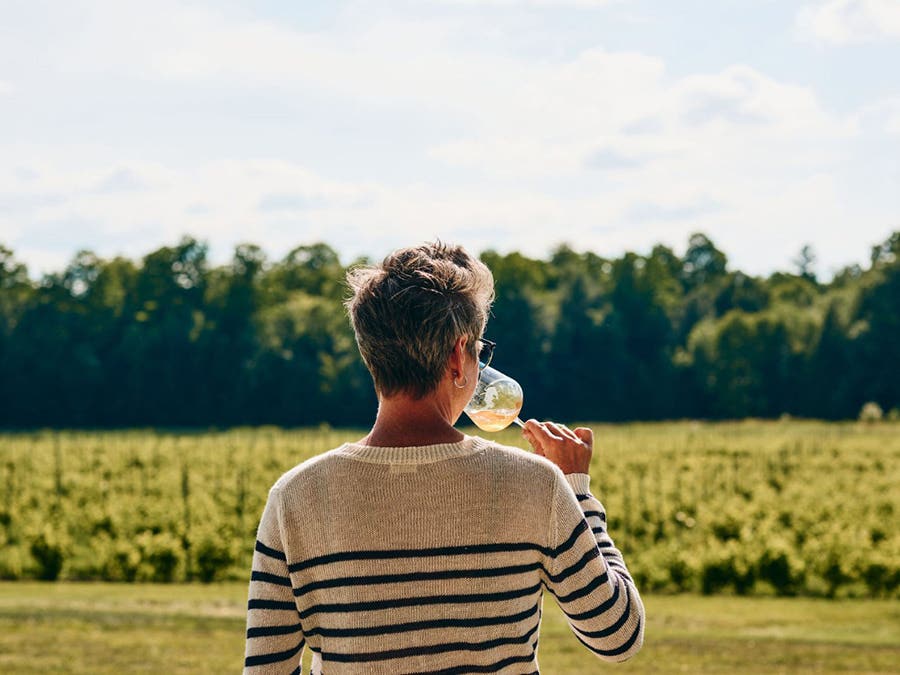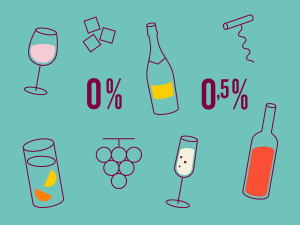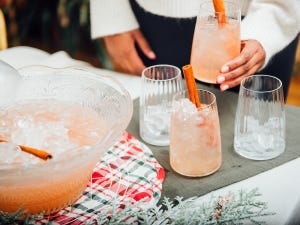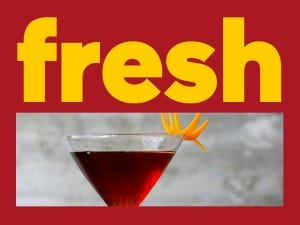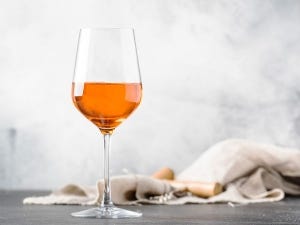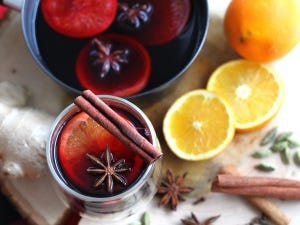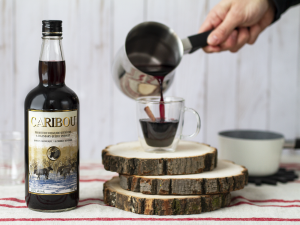Because of our harsh climate, Quebec has long been limited to hybrid grape varieties, created in laboratories to combine the resistance of hardy varieties and the qualities of vitis vinifera—the common grape vine, which is less hardy to the cold. Marquette, Frontenac, Marechal Foch, Vidal and Seyval, among others, were selected for their yield and their ability to survive the winter. However, as a result of rising temperatures, vinifera grapes are increasingly making their way into southern Quebec. Will Pinot Noir, Chardonnay, Riesling and Merlot overtake the hybrids over time?
"We can imagine that, in the near future, we could plant vinifera that could endure -10°C or even -25°C in winter," according to Frédéric Lasserre, co-author of the study "The development of Canadian vineyards and the impact of climate change". What is certain is that "the territory of wine cultivation will expand over time; we will see the geographical extension of hybrid grape varieties outside of southern Quebec: in Abitibi, in Lac-Saint-Jean, in the Lower St. Lawrence...". We can therefore expect more wine to be produced throughout the province, and more from vinifera in the south.
A longer but more unpredictable season
The higher temperatures will produce wines with a nice balance of sweetness and acidity, but may also give winemakers a break: "In Quebec, our biggest challenge is the weather. We have to get everything done—and done well—between the end of March and the end of August," says Geneviève Thisdel of Les Bacchantes Vineyard. An earlier spring and a later fall allow us to stretch out the work period in the vineyard. We will also benefit from an interesting harvest and maturity (the longer the maturation, the more concentrated the sugar in the grapes).
On the other hand, beware of too little precipitation in winter: "We need snow, because it acts as an insulator," adds the vineyard manager, before pointing out that "the early spring also comes with the risk of frost". This was the case in May 2021: farewell to the harvest on the plots where the buds had already opened. All agree that the unpredictability of extreme weather events—exacerbated by climate change—is a challenge that is here to stay.
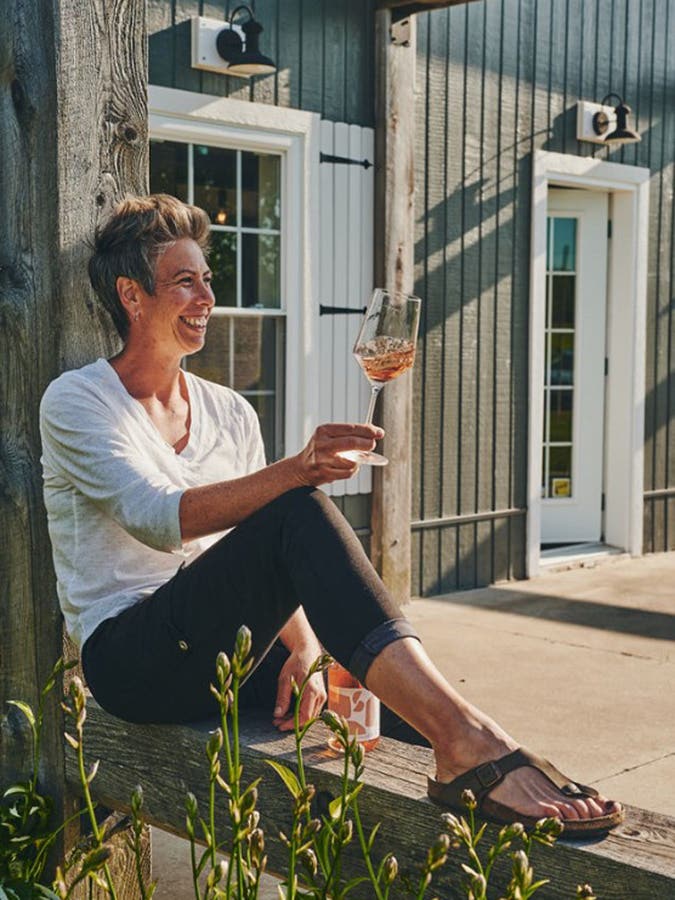

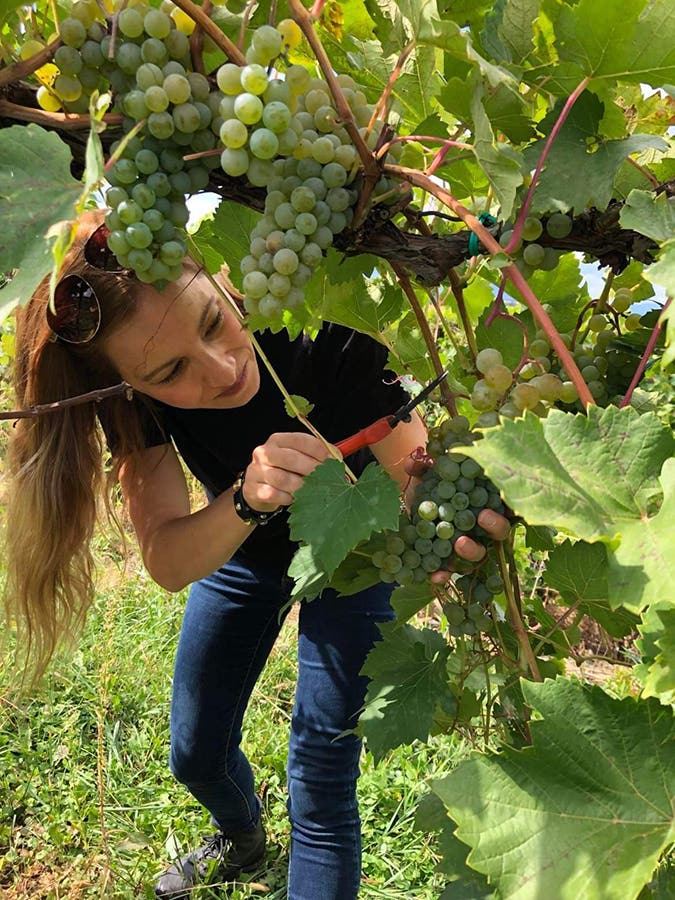

Be a part of the solution
But can winemakers themselves do their part to avoid contributing to climate change? For Thisdel, "the future lies in grape varieties that will be resistant to disease," which will minimize the need for treatments and subsequent tractor use.
Véronique Lemieux, co-operator of an experimental plot at Vignoble La Bauge in Brigham, also answers in the affirmative: "The crux of the matter is carbon capture. As soon as you turn over the soil by plowing, the carbon escapes into the atmosphere. So we use a cover crop of clover, mustard and buckwheat between the rows. When we cut it, it becomes green manure that nourishes our soil, protects it from erosion and helps retain the carbon". On some parcels at La Bauge, sheep are also in charge of weeding!
A sign of the times or a sign that times are changing? In 2021, 35% of Quebec winemakers said they planned to obtain their organic certification within five years. So, as climate change accelerates, the movement towards a healthier viticulture seems to be keeping pace in Quebec.
 Access to SAQ Inspire personalized services and store inventories are unavailable at the moment.
Access to SAQ Inspire personalized services and store inventories are unavailable at the moment. Free in-store delivery with purchases of $75+ in an estimated 3 to 5 business days.
Free in-store delivery with purchases of $75+ in an estimated 3 to 5 business days. 
